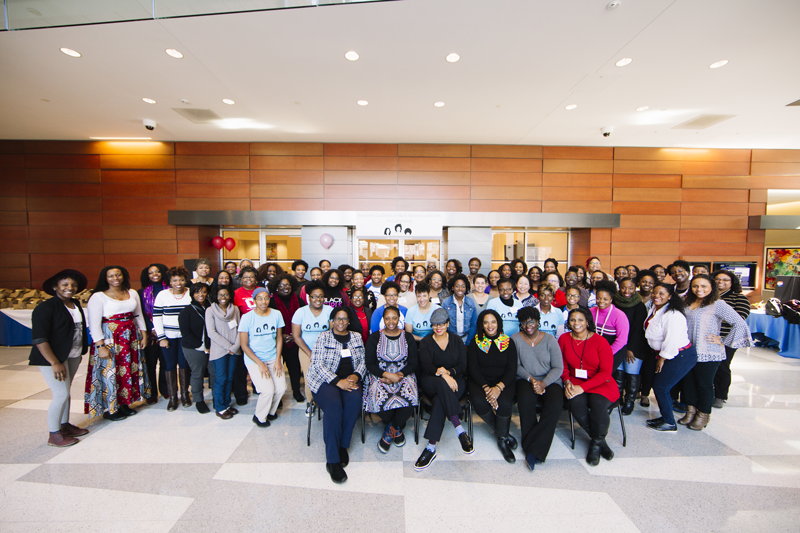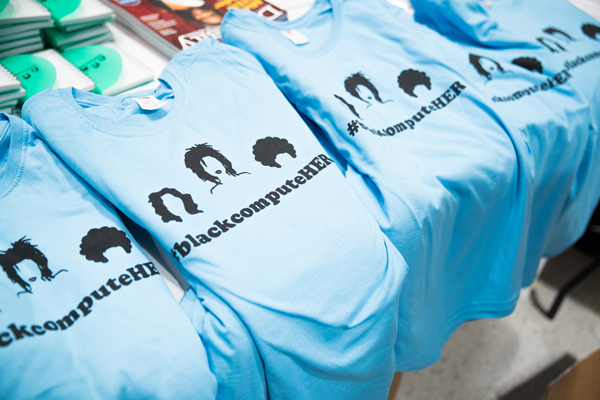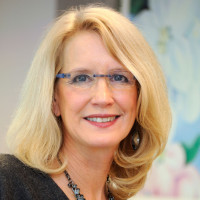Expanding the Pipeline: Celebrating Black Women in Computing
The dialogue about broadening participation in computing must extend beyond a narrow focus on women, in general, to one that focuses on the intersectionality of race and gender if the computing educational community will be more inclusive. Engaging more diverse perspectives in computing education can be described as a social justice issue, but also promoted as a necessity to increase innovations in industry (National Science Foundation and National Center for Science and Engineering Statistics, 2013). More specifically, to succeed in increasing the participation of black women in computing, there must first be an acknowledgement that black women’s experiences in computing are different from those of other groups. Subsequently, an educational framework can be developed to address these differences.
Exploring white privilege in the context of computing education, for example, would facilitate a rich discussion of the experiences of black women students and professionals—and help provide solutions. This would also lead to the development of intervention strategies that actually work for black women throughout their educational and career pursuits.

Caption: Attendees of 2017 #blackcomputeHER Conference, in Washington, D.C. The blackcomputeHER.org founders are seated in front row, starting third from the left: Jamika Burge, Jakita Thomas, and Quincy Brown.
In an effort to better support and empirically discover the community’s needs, the inaugural Black Women in Computing Conference, which was sponsored by blackcomputeHER.org, was held at Howard University in January 2017. The conference was an opportunity to grow and support a community of black women in computing that provides resources and support to others.
The contributions of the conference stem from the need to foster inclusion among diverse experiences with respect to computing, particularly from the perspective of black women. The conference amplified the voices of attendees, who were black women and their allies, simply adding their experiences to the discipline’s discourse by actively investigating the intersectionality research to differentiate the experiences of black women from other groups in computing; providing a critical analysis of the conditions under which black women thrive in computing careers; and recording the experiences that black women share so we can articulate their stories and how their caliber of their experiential commonalities differentiate them from other groups in computing. The conference, its research, and its peripheral professional development activities inform the national dialogue in support of an inclusive technology workforce. Studying these issues around black women in computing helps us better understand the achievement gap as well as the persistence (or retention) gap in the discipline.
Black women do not openly talk about their negative experiences for a variety of reasons. These experiences range from being ostracized for being different (e.g., some peers or professors do not want to work with black women) to the possibility that raising concerns around inequality can result in being labeled as overly aggressive or portrayed as the “angry black woman” who does not take her academics seriously.
Black women’s experiences simply differ from other women’s experiences. The “double bind” nature of black women’s participation in STEM ensures that issues of discrimination are indistinguishable from gender or race (Malcom and Malcom, 2011; Malcom, Hall, and Brown, 1976). Within the computing community, awareness about black women’s experiences is closeted. As the computing education experience for black women is different from other groups, it is important to unpack these differences to better understand the nature of this silence. (It should be noted that other women of color groups, such as Hispanic and Native American, may have similar experiences, but further research is needed.)

To date, our research (Burge, Yamaguchi, and Thomas, 2017; Burge, Yamaguchi, and Thomas, 2016; and Yamaguchi and Burge, 2016) confirms that the experiences for black women in computing are not only different, but it highlights unique (and in some ways, simple) opportunities for providing more inclusive learning and work environments. For example, attendees overwhelmingly appreciated the opportunity to share their experiences in a safe and supportive environment. Additionally, attendees affirmed that having role models (many of whom did not look like them) and resilience in K-12 helped to create their personal narratives of what it means to be successful in computing. As a result, we recommend an increase in mentoring opportunities for black women and girls. Going a step further, we propose connecting the pathways of support from middle school through one’s career. We are conducting more research in this space, and have developed partnerships to build out a pathway model.
In addition to the 2017 conference, we held a workshop for black women in computing in January 2016 that explored some early questions around support structures, advancement in the field, and workforce development. These convenings, while supportive to black women, also served as a way to spring us into action in support of the larger computing community. When we understand more about different perspectives, we recognize that our collective differences are not as big as we think. Inclusion opens our minds to fresh and disruptive ideas, true innovation, and opportunities for personal growth.
Consider joining us for the 2018 #blackcomputeHER Conference and be part of the conversation! Please check blackcomputeHER.org for more information.
About the Authors
Quincy Brown, Jamika Burge, and Jakita Thomas are the co-founders of blackcomputeHER.org, which is dedicated to supporting computer science and STEM education and workforce development for black women and girls. We aim to leverage our research expertise to create a clearinghouse for literature about black women in computing and disseminate data and information that creates a spirit of urgency around the lack of sustainable diversity in computing, particularly with the current efforts toward coding. blackcomputeHER.org organizes the annual #blackcomputeHER conference which provides a platform for supporting the community of black women and girls in computing and technology through education and professional development. Visit blackcomputeHER.org for more information.
We gratefully acknowledge the National Science Foundation for its support of the 2016 Black Women in Computing Workshop (award 1620932) and the 2017 Black Women in Computing Conference (award 1642205). We are also grateful to our sponsors of the 2017 Conference: Intel Corporation, Capital One, the Anita Borg Institute, the Association for Computing Machinery (ACM), the National Center for Women in Technology (NCWIT), and the Thurgood Marshall College Fund (TMCF).
References
Burge, J. D., Thomas, J. O., and Yamaguchi, R. (2017). Follow-Up Workshop: Computing and Intersectionality: The Social and Behavioral Structures at Play for Black Women in the Computing Sciences. Final Workshop Report. Washington D.C.: Howard University.
Burge, J. D., Thomas, J. O., and Yamaguchi, R. (2016). Computing and Intersectionality: The Social and Behavioral Structures at Play for Black Women in the Computing Sciences. Final Workshop Report. Washington D.C.: Howard University.
Malcom, S. M., Hall, P. Q., and Brown, J. W. The Double Bind: The Price of Being a Minority Woman in Computer Science. AAAS Report No. 76-R-3, April 1976.
Malcom, L.E., and Malcom, S. M. (2011). The double bind: The next generation. Harvard Educational Review, 81(2), 162-389.
National Science Foundation & National Center for Science and Engineering Statistics. (2013). Women, Minorities, and Persons with Disabilities in Science and Engineering 2013 (Special Report NSF 13- 304). Arlington, VA: National Science Foundation.
Yamaguchi, R., and Burge, J. D. (2016). Evaluation mirroring research: Intersectionality of race and gender in designing evaluations. American Evaluation Association (AEA Conference), Atlanta, GA.








